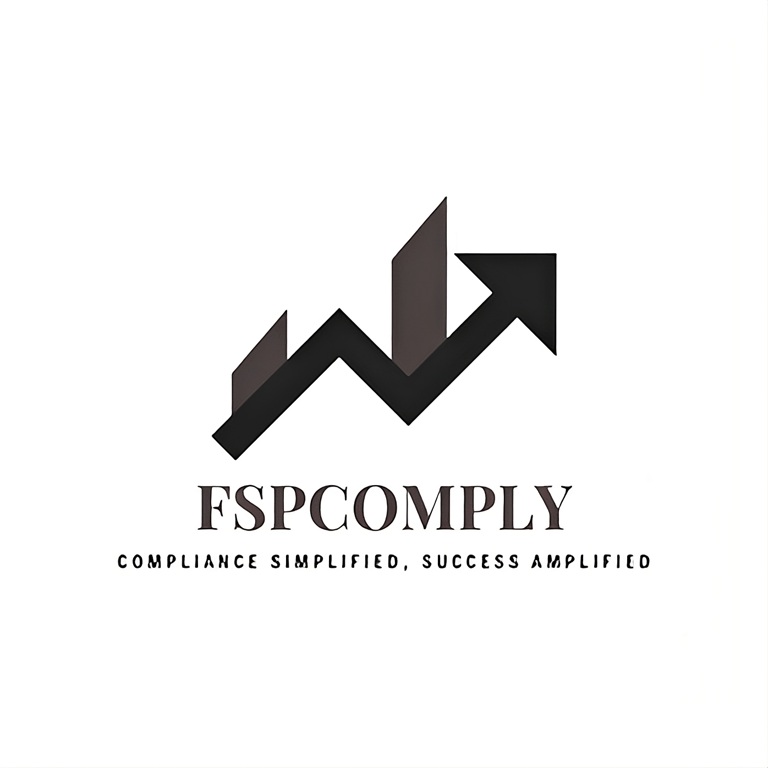The Importance of External Compliance Services for Financial Service Providers in South Africa
Navigating South Africa’s financial regulatory landscape can be challenging for Financial Service Providers (FSPs). With evolving FICA, FSCA, and AML/CTF requirements, ensuring compliance is critical to avoiding penalties and reputational risks. In this blog, we explore the importance of external compliance services—how they help FSPs stay up to date with regulations, improve risk management, and streamline compliance processes cost-effectively.
4/3/20252 min read


The Importance of External Compliance Services for Financial Service Providers in South Africa
In South Africa’s dynamic regulatory environment, Financial Service Providers (FSPs) face an ever-growing burden of compliance. With the Financial Intelligence Centre Act (FICA), the Financial Sector Conduct Authority (FSCA) regulations, and evolving anti-money laundering (AML) and counter-terrorist financing (CTF) measures, maintaining compliance is more than just a legal obligation—it is a critical component of business integrity and sustainability. This is where external compliance services become invaluable.
Why Compliance is Critical for FSPs
FSPs are at the forefront of financial transactions, handling client funds, investments, and sensitive financial data. As a result, they must adhere to strict regulatory frameworks to mitigate risks such as money laundering, terrorist financing, and fraud. Failure to comply can lead to severe penalties, reputational damage, and even revocation of an FSP licence.
Given the complexity and evolving nature of compliance requirements, many FSPs turn to external compliance services to ensure they remain aligned with the latest regulations and best practices.
Benefits of External Compliance Services
1. Expert Guidance and Regulatory Updates
Regulatory frameworks are continuously evolving. External compliance service providers specialise in monitoring these changes and ensuring that FSPs remain compliant with the latest FSCA, FICA, and other financial regulations. This reduces the risk of non-compliance due to outdated policies or lack of awareness.
2. Independent Risk Assessments
A fresh, independent perspective is essential in identifying compliance gaps. External compliance consultants conduct thorough risk assessments, evaluating an FSP’s policies, procedures, and controls to identify potential weaknesses before regulators do.
3. Cost-Effectiveness
Hiring a full-time in-house compliance team can be costly, especially for smaller FSPs. External compliance services provide an affordable alternative by offering expertise on demand without the overhead costs associated with maintaining a full-time compliance department.
4. Enhanced AML and CTF Controls
FSPs must implement robust Anti-Money Laundering (AML) and Counter-Terrorist Financing (CTF) measures. External compliance experts assist in setting up proper client due diligence (CDD), transaction monitoring, and reporting mechanisms to detect and prevent suspicious activities effectively.
5. Regulatory Reporting and Audit Support
Regulatory bodies such as the FSCA and the Financial Intelligence Centre (FIC) require periodic reporting and audits. External compliance services help FSPs prepare and submit required reports accurately, reducing the risk of penalties for non-compliance.
6. Training and Awareness Programmes
Compliance is not just a function of policies but also of people. External compliance providers offer tailored training programmes to ensure that employees understand their regulatory obligations and can effectively implement compliance measures.
7. Assistance in RMCP Development and Updates
Risk Management and Compliance Programmes (RMCPs) are critical for FSPs in managing financial crime risks. External experts assist in developing and updating RMCPs to align with the latest regulatory requirements and risk assessment methodologies.
The Bottom Line
For FSPs in South Africa, compliance is non-negotiable. The complexities of regulatory requirements necessitate a proactive approach, and external compliance services offer an efficient, cost-effective, and expert-driven solution. By leveraging external expertise, FSPs can ensure they remain compliant, mitigate risks, and focus on their core business operations without the constant fear of regulatory penalties.
In a landscape where compliance failures can lead to significant financial and reputational damage, investing in external compliance services is not just an option—it is a strategic necessity.
Connect
Your compliance partner for financial service providers.
Support:
info@fspcomply.com
+2775 3793 566
© 2025. All rights reserved.
FSPCOMPLY (PTY) LTD registration number 2025 /109133/07 is an authorised external compliance practice, approved by the Financial Sector Conduct Authority (Practice No. 8062).
